You're watching your 2WD forklift spin its wheels in the mud again. The operator is frustrated, the schedule is slipping, and you know that every minute of downtime costs you money.
A 4WD forklift1 gives you constant traction2 on tough sites, keeps your operators safer with better stability3, and has a longer working life4 because it's not tearing itself apart. It's an investment in uptime and lower long-term costs.
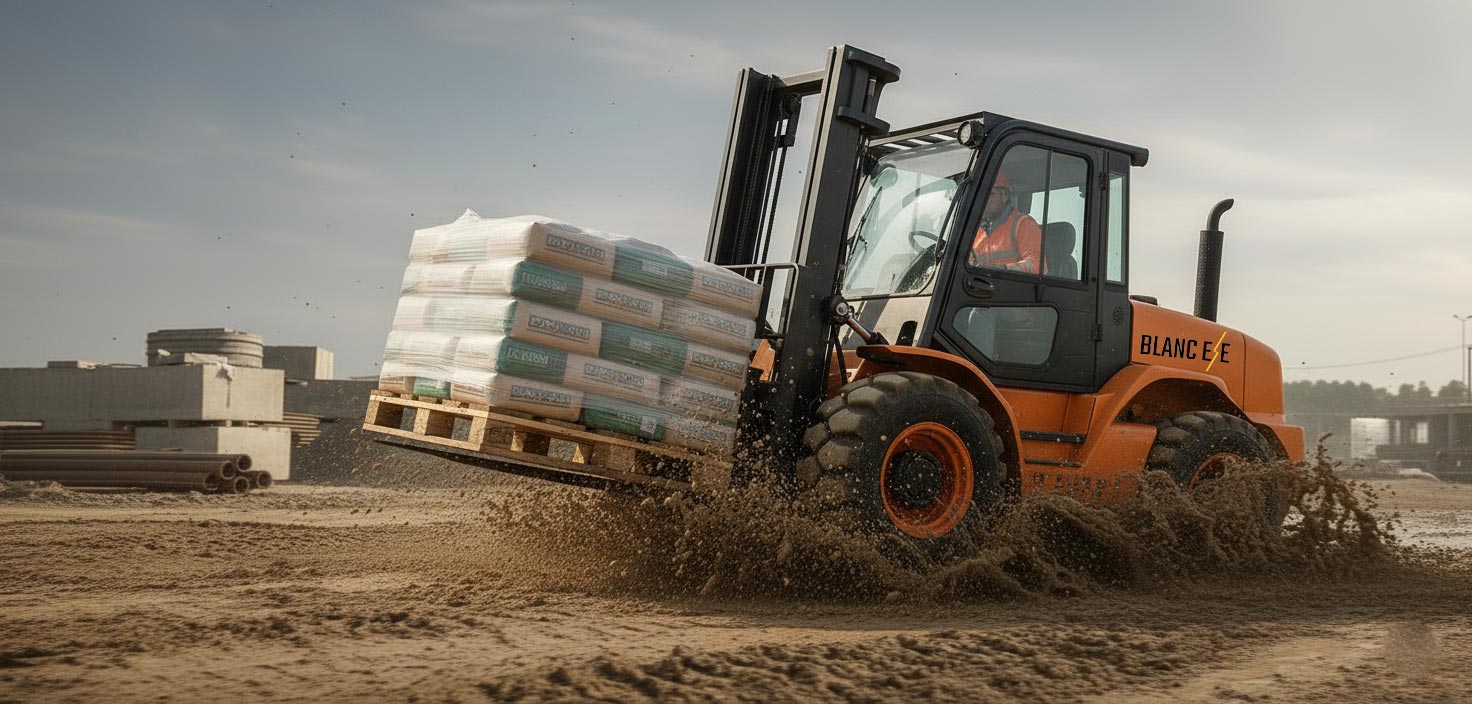
Over the past decade, I've had this exact conversation with project managers, farmers, and quarry operators. They almost always start by saying, "I need more power." I get it, but the real advantage of 4WD isn't brute force. It’s about how that power is used. It’s about smarter engineering5 that solves problems beyond just getting stuck. What I've seen in the field is that the biggest difference shows up on the maintenance log and in the machine’s performance two or three years down the road.
So, is it just an expensive feature for muddy days?
You're looking at the price difference and thinking, "Am I paying all this extra money for a feature we'll only need a few times a year when the weather is bad?"
No, not at all. Think of it as full-time stability, not a part-time rescue feature. Its main job is to give your operator the confidence to work safely and efficiently on any part of your site, every single day.
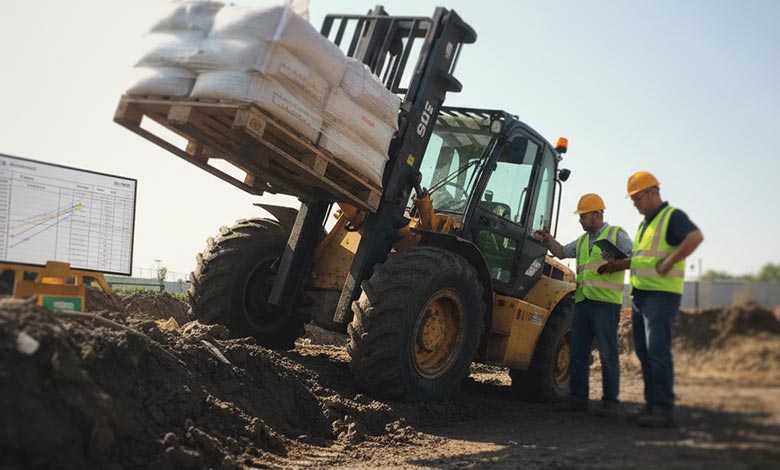
I remember talking to a construction6 foreman who was building a subdivision. His biggest issue wasn't his 2WD machines getting stuck. His problem was that his operators would slow to a crawl the moment they left the pavement. They were constantly worried about a drive wheel slipping on a patch of gravel or wet clay, which could shift the load. That hesitation, spread across multiple machines and an entire project, was killing his productivity.
A 4WD system solves this because it provides proactive grip.
- With 2WD: The operator is always trying to avoid losing traction.
- With 4WD: The machine is always maintaining traction.
If one wheel hits a soft spot, the others just keep pulling without any drama. This gives the operator the confidence to work at a steady, safe pace, no matter the ground conditions. It’s about preventing the problem, not just solving it after it happens.
How does it actually make the forklift last longer?
You've probably noticed that after a couple of years, your 2WD forklifts start to feel loose. They rattle, they creak, and you just accept it as normal wear and tear from a tough job.
It makes the machine last longer by spreading out stress. A 2WD forklift funnels all the twisting forces onto one axle. A 4WD system distributes those forces across the entire frame, which protects it from fatigue and damage.
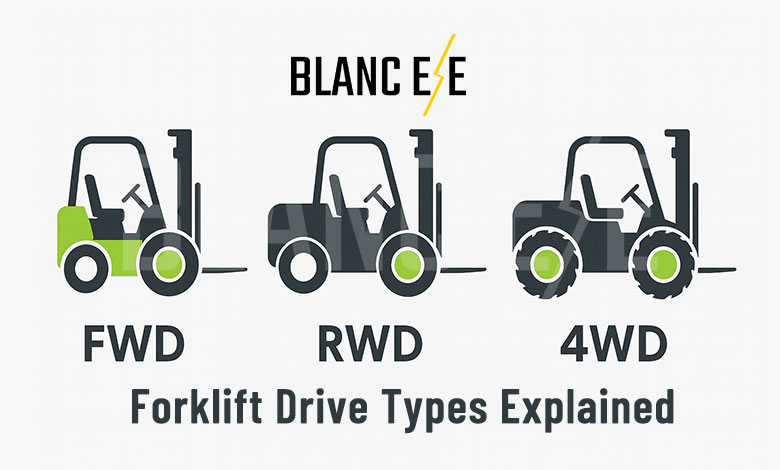
This is the single most important insight I've gained from my clients. The ones who run mixed fleets always tell me the same thing: "Your 4WD units still run tight, but my 2WD machines feel like they're shaking apart." That's not a coincidence; it's physics.
Imagine lifting a heavy, off-center load on slightly uneven ground. In a 2WD unit, one axle and its mounting points are taking all that strain. All the engine torque and the weight of the load are fighting each other in one small area. This creates stress hot spots7 that lead directly to:
- Cracks in frame welds over time.
- Prematurely worn-out tires on the drive axle.
- Failed seals and bearings.
A 4WD system shares that load across four points instead of two. There are no hot spots7. The machine operates in a balanced state. That’s why it feels more solid, and it's why you're doing fewer major repairs in year three and beyond. It’s not about luck—it’s just better engineering.
So, when is it actually worth the extra money?
You need to justify every dollar on your budget. You can’t just buy the most expensive option; you need to know it will deliver a clear return on investment8 for your specific operation.
It's worth it the moment your work moves off perfect concrete. For construction6, agriculture, mining, or any site with slopes, gravel, or weather, the payback in uptime and safety is huge.
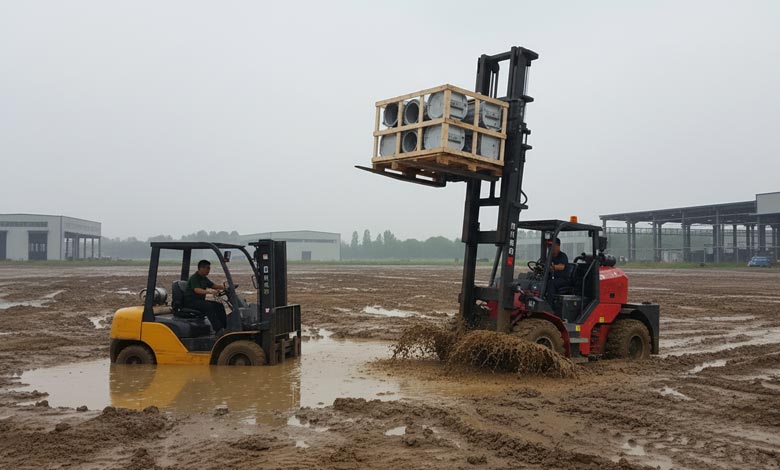
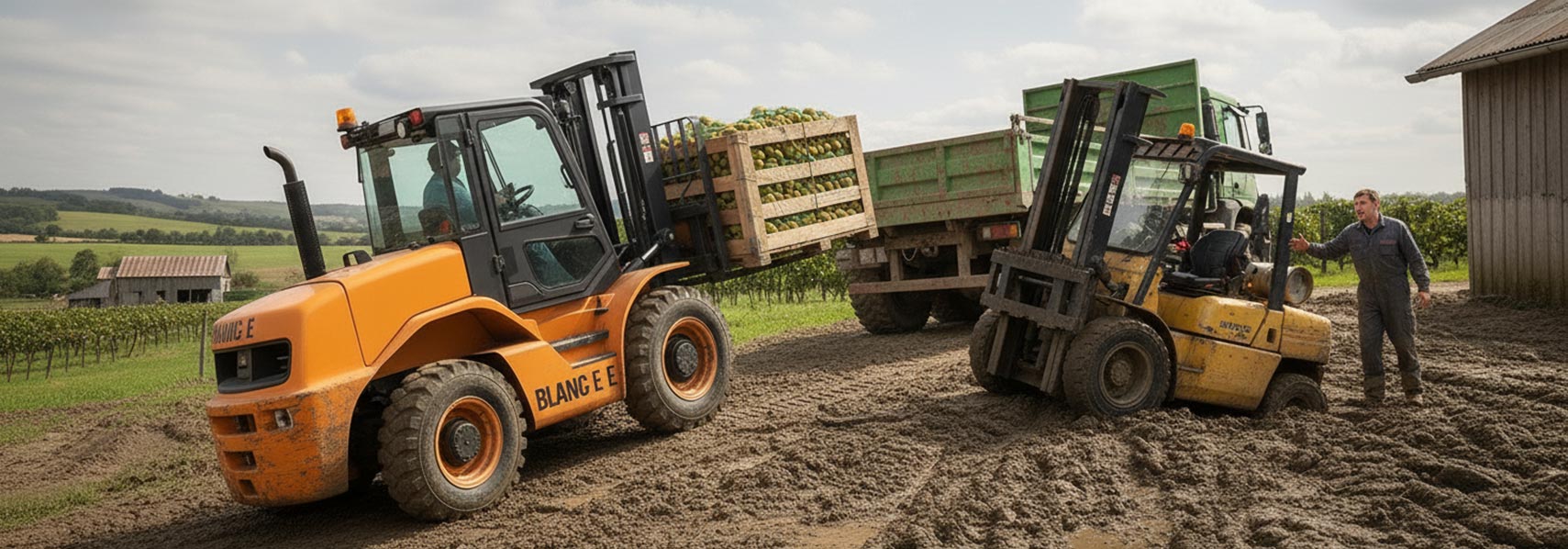
When a client asks me this, I tell them to think about their "80 percent." Base your decision on the conditions your machine will face 80% of the time. If that involves anything unpredictable, 4WD is the right call.
Here’s what I’ve seen firsthand with my clients:
| Industry | The Real-World Problem | How 4WD Pays for Itself |
|---|---|---|
| Construction | A foreman told me, "One morning of rain can shut down my material handlers for the whole day. That's a disaster for the schedule." | The machine works regardless of the weather. It pays for itself by eliminating downtime and keeping the project moving forward. |
| Agriculture | A farmer said, "I have to cross dirt tracks and grassy fields to get to the barn. A 2WD forklift is useless to me half the year." | It provides the versatility to move materials anywhere on the property, from field to storage, without tearing up the ground or getting stuck. |
| Quarries & Mining | An operations manager explained, "My biggest concern is a machine losing traction on a graded haul road. That's a major safety incident." | The superior grip and stability on slopes are non-negotiable for safety. The machine's longevity under heavy stress also means a lower total cost. |
If you're only ever working inside a warehouse with a polished floor, you don't need 4WD. For everyone else, it’s an investment that pays you back every single day.
Conclusion
4WD is more than just a feature for mud. It’s a complete system that delivers better performance, improves safety, and protects the forklift itself for a longer, more productive life.
Explore how a 4WD forklift can enhance traction and stability, making it a smart investment for various industries. ↩
Learn about the importance of constant traction in maintaining productivity and safety on challenging job sites. ↩
Discover how better stability can prevent accidents and improve operator confidence in various working conditions. ↩
Find out how 4WD technology reduces wear and tear, extending the lifespan of your forklift. ↩
Understand how innovative engineering solutions can enhance forklift performance and reliability. ↩
Find out how 4WD forklifts can enhance efficiency and safety in construction environments. ↩
Discover the impact of hot spots on forklift performance and how 4WD systems mitigate this issue. ↩
Get insights on evaluating the financial benefits of investing in a 4WD forklift for your operations. ↩

